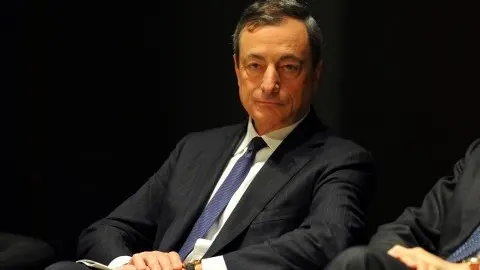Germany: Another shocker in the Ifo
The German Ifo takes another nosedive, boding ill for any quick rebound of the German economy
| 99.1 |
Germany Ifo IndexFrom 101 in December |
That’s a shocker. Germany's most prominent leading indicator, the Ifo index, plunged in January, adding to latest growth concerns. With its fifth consecutive drop, the Ifo index now stands at 99.1, from 101.0 in December. The expectations component took a particularly severe hit.
Looking at the sector level, manufacturing lost much more momentum than the services sector. Needless to say that cars play an important role in this development. Still, both confidence in the manufacturing and the services sector are still above historical averages.
The manufacturing sector has been on a downward trend since last August, dragging the entire economy down. In fact, the German economy is currently suffering from a strange and also unique combination of homemade one-off factors such as the delayed introduction of new emission standards in the automotive sector or low water levels which prevented dropping global oil prices from reaching consumers but also a series of external uncertainties. Just think of the trade tensions, a slowdown of the Chinese economy or Brexit. When the ECB yesterday talked about the risk of “persistence of uncertainties”, it clearly had the German economy in mind; It's the best example of how a fundamentally solid economy can be brought to its knees by risks and uncertainties.
Looking ahead, today’s Ifo index suggests that it could take until the second quarter before the German economy regains momentum, mainly on the back of investments, consumption and some relief from the global risk factors. In this regard, Brexit is probably the single most threatening risk as a “no deal” Brexit would come at the most inconvenient time for the economy, namely exactly when it should be about to rebound.
All in all, we still think that the German economy could get away with one black eye. However, the shield that stronger domestic demand can offer against external risks will be put to a severe test in the coming months.
This publication has been prepared by ING solely for information purposes irrespective of a particular user's means, financial situation or investment objectives. The information does not constitute investment recommendation, and nor is it investment, legal or tax advice or an offer or solicitation to purchase or sell any financial instrument. Read more
Download
Download snap
25 January 2019
In case you missed it: The new reality This bundle contains 8 Articles